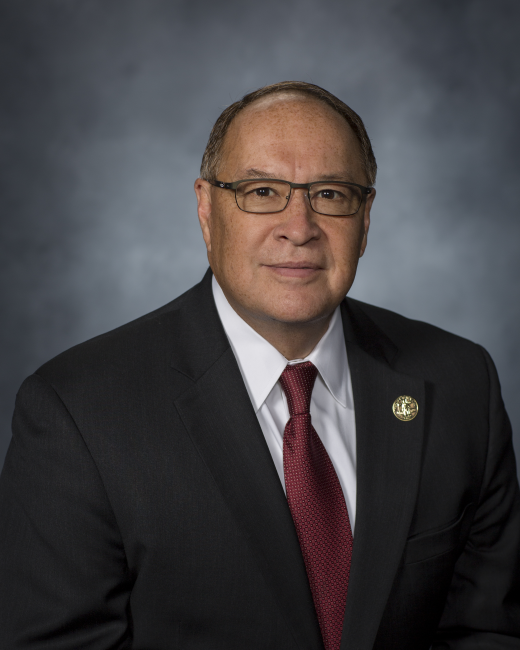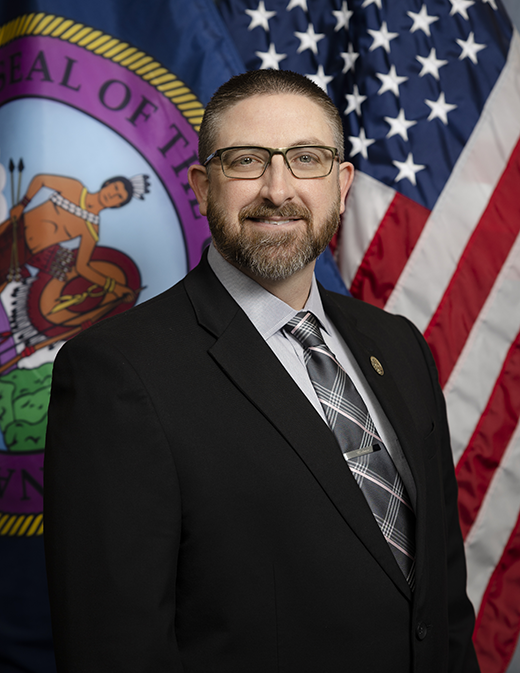History
“Lighthorse” is an historic name given by the Chickasaw, Choctaw, Cherokee, Muscogee and Seminole Nations, often referred to collectively as the Five Civilized Tribes, to their mounted police force. Once removed to Indian Territory, the Five Civilized Tribes created the elite Lighthorse police to serve and protect their citizens.
The Chickasaw Nation Lighthorse Police Department (LPD) was re-established in 2004. Before this, law enforcement duties for the community were performed by the Bureau of Indian Affairs.
Lighthorse officers help uphold the Chickasaw Code, regulations and laws vital to the day-to-day function of our tribal government.
Vision
The Chickasaw Lighthorse Police Department uses innovative methods and state-of-the-art technology to provide exceptional law enforcement services to the Chickasaw Nation jurisdiction.
Values
The Lighthorse Police Department commits to the following values:
- Provide the highest quality of professional law enforcement services to the community with the goal of enhancing the quality of life within the Chickasaw Nation.
- Work in partnership with the community to identify and resolve issues which impact public safety.
- Empower citizens of the Chickasaw Nation and the community to resolve problems by creating an environment that encourages solutions addressing the needs of the community.
- Nurture the public trust by being accountable to the highest standards of professionalism and ethics.
- Respect individual rights, human dignity and the values of all members of the community and the department.
Jurisdiction
Jurisdictional territory includes 7,648 square miles and encompasses 13 counties: Bryan, Carter, Coal, Garvin, Grady, Jefferson, Johnston, Love, Marshall, McClain, Murray, Pontotoc and Stephens Counties. The LPD is divided into three precincts: WinStar, Ada and Newcastle, where 105 full-time sworn law enforcement officers serve the Chickasaw Nation.
Leadership

Randy Wesley - Commissioner of Tribal Law Enforcement
Commissioner of Tribal Law Enforcement, Randy Wesley was appointed by Governor Bill Anoatubby to serve the Chickasaw Lighthorse Police Department (LPD), first as chief of police in November 2012. In July 2017, he began his current role as commissioner. Prior to joining the LPD, Commissioner Wesley retired after 20 years of service with the Bureau of Indian Affairs (BIA) as a special agent. Commissioner Wesley has also worked in the McAlester, Oklahoma Police Department for 11 years where he was a dispatcher, police officer and corporal detective.
He holds certifications from the Council on Law Enforcement Education and Training (CLEET), CLEET’s Advanced Peace Officer Certification and is a graduate of the Federal Law Enforcement Training Center Criminal Investigator Academy in Glynco, Georgia.
He serves as the tribal representative on the CLEET Executive Board, tribal representative to the Executive Board for the Oklahoma Association of Chiefs of Police (OACP), past president of the Oklahoma Sheriff’s and Peace Officers Association (OSPOA), board member for the Pontotoc County 911 Advisory Board, board member for the Murray County 911 Advisory Board, board member for the Family Crisis Center Executive Board, board member for the Oklahoma Law Enforcement Museum and Hall of Fame and a committee member for the International Association of Chiefs of Police (IACP), Victim Services Committee.
Commissioner Wesley is married to his wife, Patty, of 37 years. Together, they have four children and nine grandchildren.

Charles C. Palmer - Chief of Police
Charles (Chris) Palmer was appointed by Governor Bill Anoatubby to serve as the chief of police for the Chickasaw Nation Lighthorse Police Department in December 2022. Chief Palmer joined the Lighthorse Police Department in 2005 and served in numerous roles to include patrol, K-9 and criminal investigations. Chief Palmer served as the captain over the criminal investigations division from 2017 to 2020 and later the captain over the administrative services division from 2020 until his appointment.
Chief Palmer is a graduate of the Federal Law Enforcement Training Center Indian Police Academy and holds an advanced law enforcement certification from the Oklahoma Council on Law Enforcement Education and Training. Chief Palmer obtained a Bachelor of Arts and a Master of Science in human resources from East Central University and is currently in the organizational leadership doctoral program at Abilene Christian University. Chief Palmer serves as a president pro tempore appointed member on the Oklahoma 9-1-1 Management Authority. He is married to his wife, Merrie, of 19 years and has two daughters.